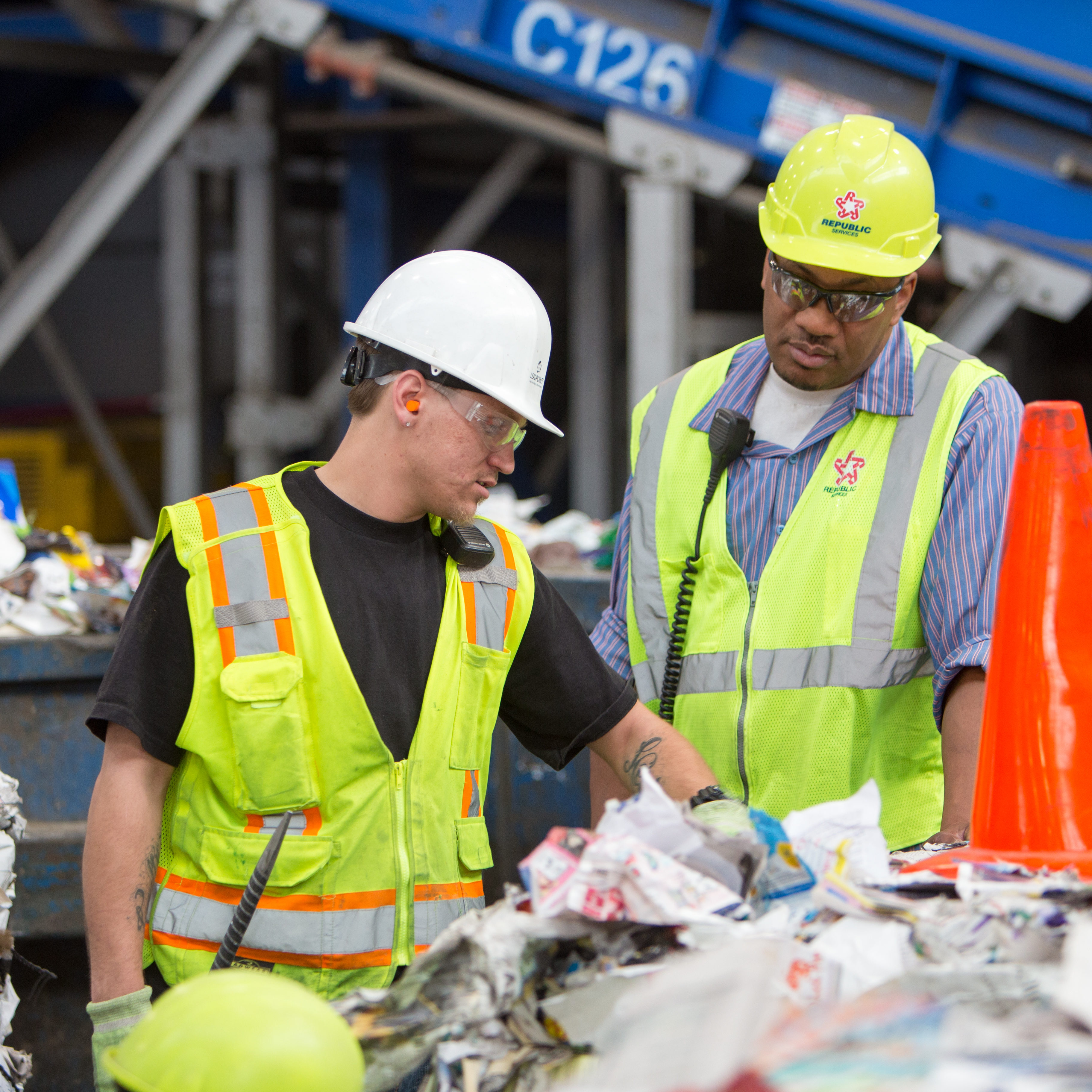Building teamwork in your recycling plant is essential to your efficiency, productivity, and profitability.
As seen in Waste Advantage Magazine, January 2020
Recycling industry leaders, plant managers, owners, and operators are good at a lot of things. They manage complex manufacturing functions. They plan and budget. They reliably serve their customers and stakeholders.
With all the “real work” on their plates, the hard work to connect with employees, grow relationships and build high-performing teams can get left behind. It is like the old story about the shoemaker’s children going barefoot—we often overlook those who are closest to us.
Does teamwork really matter? Yes! Employees who feel like part of a team are more engaged, effective and productive. Their commitment to the job reduces turnover. As writer and business management guru Patrick Lencioni states, “Teamwork remains the one sustainable competitive advantage that has been largely untapped.”
When it comes to running a recycling operation, it is essential to invest time and effort to build your team. There are seven communication principles today’s recyclers can adopt to foster teamwork—simple steps that, when implemented, encourage everyone on the team to thrive.
#1: Know Who You Are
What does your company stand for? What is your purpose? Every member of the team should understand your organization’s mission, vision, and values. They set the tone for your culture, how you operate and how you make decisions. Millennial workers, in particular, seek out employers who are purpose-focused and whose values align with their own. If you have not established these building blocks, a marketing consultant can help you quantify who you are.
#2: Embrace Your Brand
Your brand is not your logo. Your brand is a perception: it is the set of assumptions and beliefs someone forms about you based on everything they know about your organization. When it comes to brand, the idea is not to demand that people think the way you would like them to. It is to create the perception that there is no other service or product out there quite like yours. What does this have to do with teamwork? Simple. Every action taken by every member of the team contributes to the perception of your brand. The team needs to be clear on the brand you aim to build and maintain and be inspired to align their actions to it.
#3: Act Like an Owner
This principle applies to everyone in your plant. Treat the business, its resources, the operation and the job like it is your own. When teams are trained and encouraged to think like owners, and especially when they see this behavior modeled by their leaders and managers, they make decisions a little differently. The small things start to matter as much as the big ones. Teams develop a bias toward taking care of the customer, each other and the assets of the plant. An owner’s mentality builds teamwork and engagement.
#4: Listening is Communication
Effective teams listen. Good managers listen actively. Listening to understand—not to reply—is a key principle of building competent teams. You may have learned that active listening means repeating back what you hear as a way to confirm your understanding. That is part of it but can become tedious or impractical. Rather, give your employees and coworkers your attention when they are speaking. Remain present with them. Resist the tendency to rush into solving their problems and instead hear their feelings and experiences. It is hard work. It is also vital to successful communication in any team.
#5: Assume the Best
Everyone is just trying to get through the day. We all have issues, concerns and matters outside of work that affect what we bring into the workplace. When managers act with the belief that every member of the team has a positive intention, it shifts the tone of the workplace. It opens people up to getting to know one another, to act with empathy and to form strong bonds. It fosters teamwork.
#6: Everyone Needs a Coach
From world-class athletes to CEOs and students, anyone can benefit from coaching. Investing in personal coaching is one idea, but day-to-day coaching can be accomplished in simple and cost-effective ways. Train your managers in basic coaching techniques. Look for opportunities to help a sorter learn a new skill. Encourage someone who is struggling so they can overcome their challenges. Give an employee a chance to take on a new temporary assignment. Bring in a local coach for a casual presentation during the lunch break. Coaching is not a “one and done” event. It is continuous.
#7: Trust
Trust is the heart of teamwork. Successful, cohesive teams trust one another. Trust must be nurtured and maintained. It requires persistence. Building trust is a critical role for any manager. A team that is trusting is open. Its members know it is okay to express an opinion or concern and that conflict is a healthy way to uncover problems and grow new ideas. A team that trusts is one that knows who it is, understands the brand they represent, acts like an owner, listens, assumes positive intent, and avails itself to coaching.
A Cohesive Team
Building teamwork in your recycling plant is essential to your efficiency, productivity and profitability. As Lencioni says, “As difficult as it is to build a cohesive team, it is not complicated. In fact, keeping it simple is critical, whether you run the executive staff at a multi-national company, a small department within a larger organization, or even if you are merely a member of a team that needs improvement.”
For more insights on building effective teams in your recycling operation, talk to Leadpoint. They have been building high-performance work teams in recycling plants and MRFs for nearly 20 years. Call (888) 205-1511 or visit https://leadpointusa.com/

